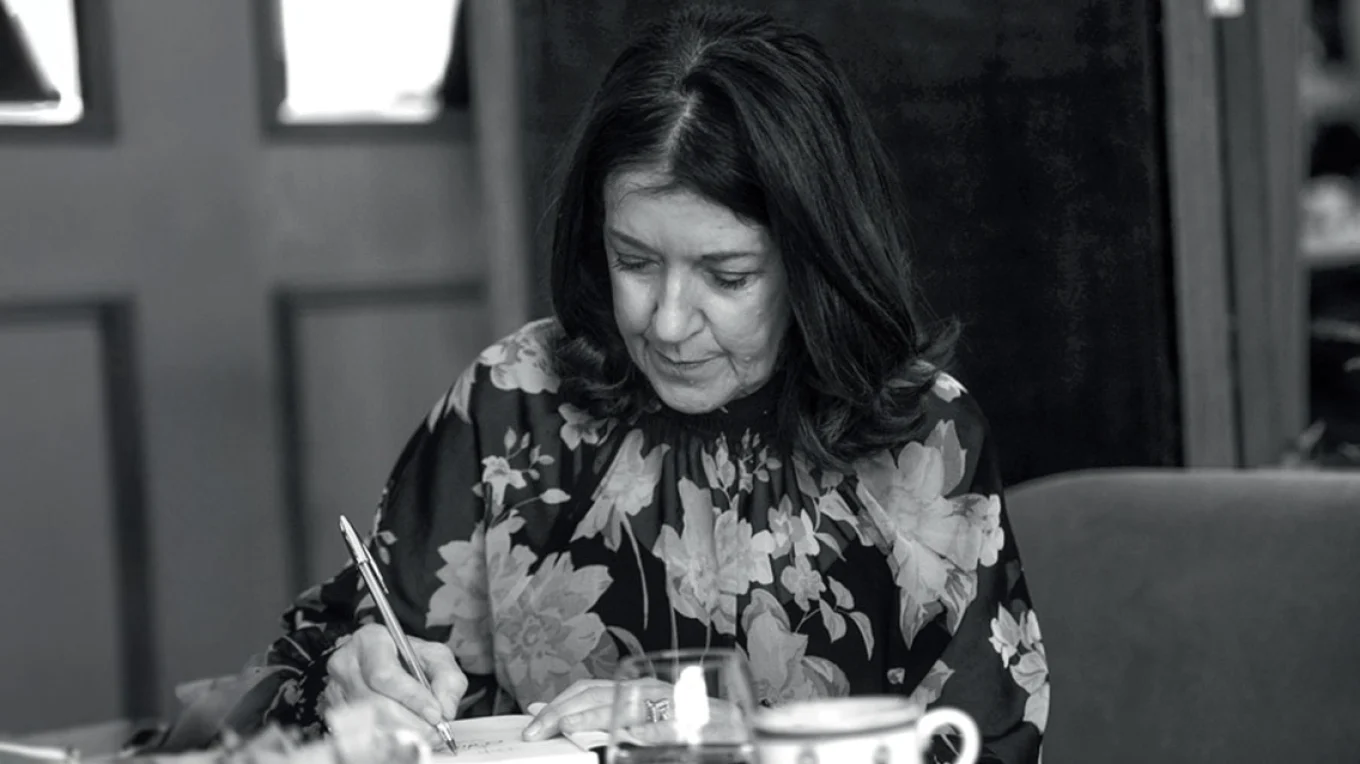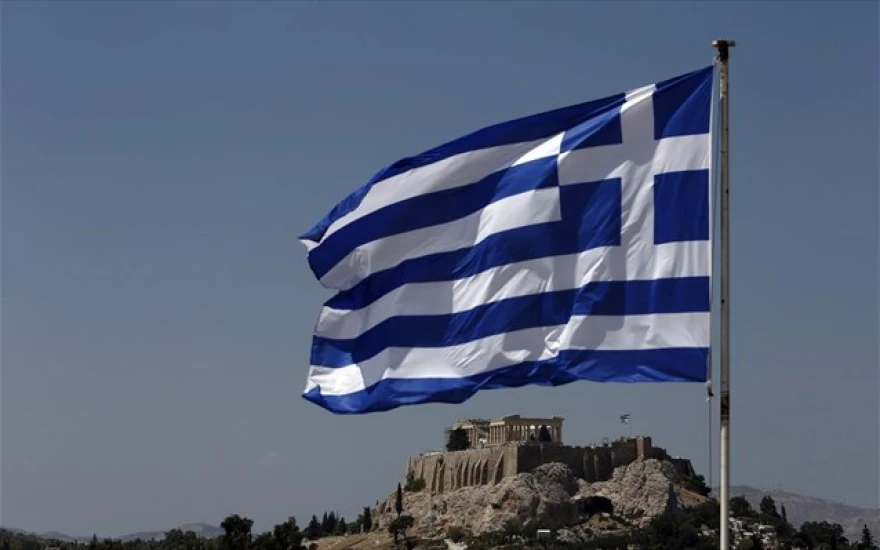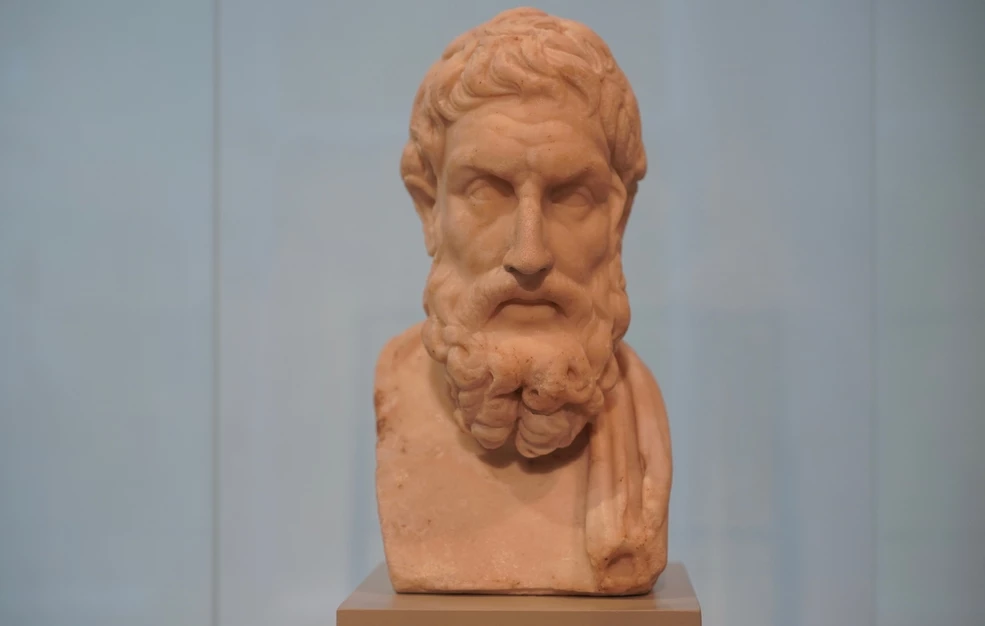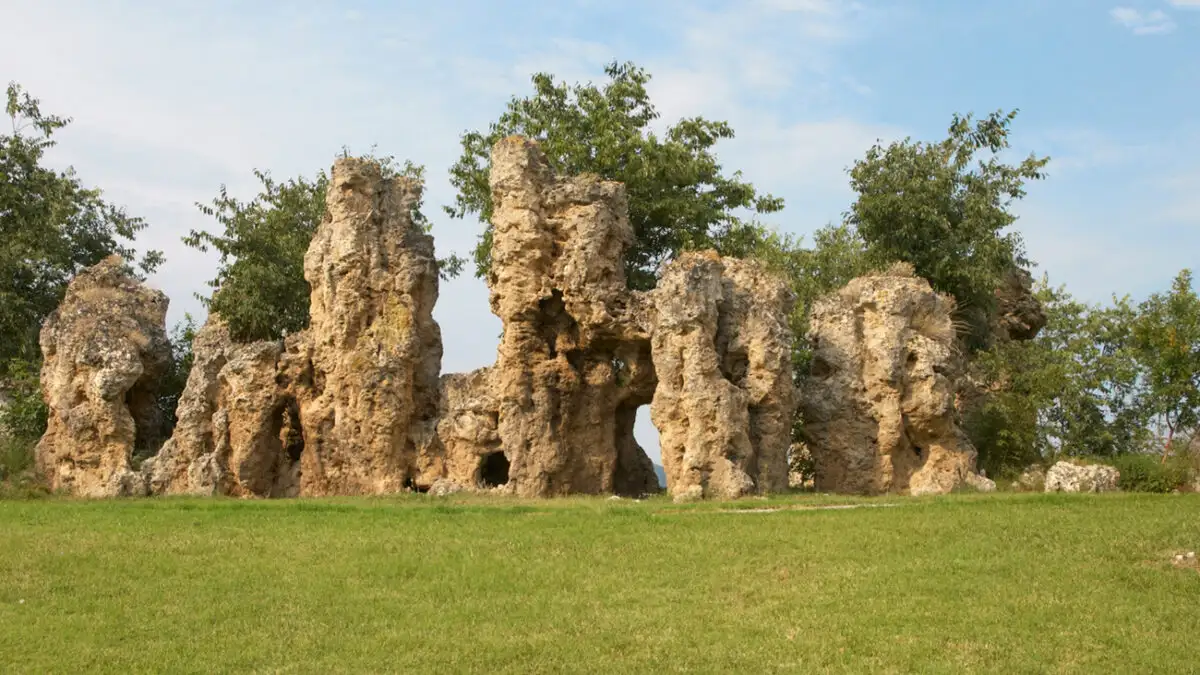"I remain optimistic about their reunification," says the acclaimed British novelist in an interview marking the 20th anniversary of Proto Thema—"Every decade, the country faces a new challenge."
Victoria Hislop’s Deep Connection to Greece
A few years ago, Victoria Hislop was granted Greek citizenship by then-President Katerina Sakellaropoulou through honorary naturalization, recognizing her contributions to promoting Greek history and culture. However, this was merely the official acknowledgment of her long-standing dedication to Greece, a passion she continues to champion in every possible way.
Raised in a well-educated family and a graduate of Oxford University, where she studied English Literature, Hislop didn’t settle for a conventional path. Instead, with just a backpack, she traveled across Europe, eventually discovering Greece—a country that would inspire her life’s work.
She gained widespread recognition with The Island, a novel that shed light on the largely unknown history of the leper colony on Spinalonga. For a British author, it was a bold choice to explore such a dark chapter in an otherwise sun-drenched Greek landscape.
Who would have imagined that the outcasts of Crete’s microcosm would captivate readers worldwide? Yet, The Island became an international sensation, selling over 6 million copies globally and later being adapted into a highly successful television series in 2005. In 2011, she published The Thread, a novel that vividly portrays the turbulent history of Thessaloniki in the 20th century—soon to be adapted for television as well.
The Figurine and Hislop’s Ongoing Exploration of Greek History
For years, Hislop has been deeply immersed in researching both ancient and modern Greece. Her novel Those Who Are Loved tackled the Greek Civil War, striking a delicate balance between opposing perspectives and striving to reconcile historical conflicts through storytelling.
Her latest and most ambitious work, The Figurine, is a sweeping 600-page exploration of Greek history, spanning from antiquity to the present day. Published by Psichogios Editions, the novel follows its protagonist, Helena, as she uncovers the dark secrets of Greece’s dictatorship, the illicit antiquities trade, and one of the most unsettling chapters in the country’s recent history.
Helena’s determination to uncover the truth intensifies when her love for the enigmatic Nick leads her to volunteer at an archaeological excavation on a Greek island. Their discoveries fuel her desire to protect ancient artifacts and trace the origins of her grandfather’s collection, forcing her to confront difficult family and historical truths.
Once again, Hislop demonstrates her deep engagement with Greek history. She approaches the country with remarkable empathy, embracing even its most painful past—often in ways that Greeks themselves struggle to do. At a time when the concept of intergenerational trauma is gaining attention in historical discourse, Hislop’s work poignantly illustrates how family secrets are often intertwined with national history.
The British Museum and the Parthenon Marbles
Victoria Hislop has never shied away from voicing her opinions on Greece’s cultural heritage. When asked about the ongoing dispute over the Parthenon Marbles, she doesn’t hold back:
"The British Museum’s stance is both irrational and shameful," she declares.
Despite this, she remains hopeful about their eventual return to Greece. "I truly believe they will be reunited one day," she says, maintaining optimism even in the face of political and institutional resistance.
Hislop’s deep understanding of Greek history and culture makes her a powerful advocate for the country’s heritage. Through her novels and public stance, she continues to bridge the gap between Greece and the wider world, proving that history is not just a record of the past—it is a living force that shapes our present and future.
It is truly remarkable that in her books, Victoria Hislop not only delves into different moments of Greek history but also explores diverse locations, from Crete to Thessaloniki, capturing different facets of Greece's rich past. One might naturally wonder if there is any part of Greek history that she hasn't studied or drawn inspiration from for her next novel. "The history of 20th-century Greece is so complex and full of turmoil, which fascinates me deeply," she responds, admitting that inspiration never seems to run dry. "I don’t think I will have any trouble finding inspiration for my next novel. The more I read, the more I find to captivate me," she shares honestly.
Her Own Greece
So what comes to mind when she thinks of Greece: the minimalist Cycladic islands or the somewhat baroque nouveau riche and the kitsch of the junta era?
"That’s a truly fascinating question!" she answers. "It’s neither one nor the other, but the entire mosaic. Most of my British readers would associate Greece with either the classical (they picture the Parthenon) or the simplicity of the whitewashed villages of the Cyclades and the vivid pink of the bougainvillea—these are the images most frequently projected, and perhaps the places most visited by tourists."
However, what comes to her mind is a blend of these two images—along with perhaps fifty other images and details. "So, yes, in that sense, Greece is definitely a tapestry, full of colors and patterns, not a monochrome image." It is this multifaceted tableau that allows her to craft beautiful personal stories—sometimes harsh and dramatic, yet tempered by her tender perspective.
"The 20th century was a series of great crises for Greece: population exchanges, occupation, civil war, dictatorship, and countless others that seem endless. I realized that nearly every decade, the country faces a new challenge," she tells me during our conversation at the “Athenee” café, in the heart of her beloved capital. "I can’t even begin to compare what Greece has endured to my home country, Great Britain. There are, of course, explanations for this ongoing turmoil. Greece (now my second homeland) rarely finds itself in a state of peaceful tranquility. There is always some ‘earthquake’ that shakes it."
"I think a similar situation applies to Cyprus, as the fate of the two countries is tightly intertwined. At least, you can’t say it’s boring. Of course, in Cyprus, there have been dramatic mistakes. But those who end up bearing the brunt of it are the ordinary citizens—the everyday people who bear the impact. The same is true in Greece. And that is relentless. The real victims are the people. Recession and unemployment are tangible results of decisions made by politicians and bankers."
Her Work
Hislop’s social sensitivity is evident not only in her impressive literary output but also in her significant social contributions. She is an ambassador for Lepra, a British charity that raises funds for the treatment of leprosy worldwide, and actively supports the National Literacy Trust, which tackles child illiteracy in the UK. Among her many initiatives, she has also become an ambassador for the "Knossos 2025" campaign, which aims to raise funds for the upgrade of the British School at Athens' research center in Crete, a cause she has become deeply involved with as vice-president.
Furthermore, Hislop has been an outspoken advocate for the return of the Parthenon Marbles, making several powerful statements in support of their reunification.
She courageously stood by Greek Prime Minister Kyriakos Mitsotakis during his confrontation with former British Prime Minister Rishi Sunak, clearly calling out the impudence of the British position. Her sensitivity toward the return of the Parthenon Marbles is moving, not only in the way she describes our ancient treasures in their natural environment in her novel The Figurine, but also in her passionate stance on the fight for their repatriation.
Given the recent progress from both the Greek and British sides on this issue, I can’t help but ask if she remains optimistic about their return.
"I remain hopeful that reunification will eventually happen—but not in the very near future. To be completely honest once again (a phrase you’ll hear often in this interview), this issue is highly complex. Discussions are happening at a much higher level than they were a decade ago. It’s not a simple matter, but I hope the British Museum will come to its senses and simply do what’s right. And most importantly, that it will move away from the somewhat entrenched and rigid position it has maintained all these years. Given that they’re going to fully renovate the wing where the marbles are housed, I wonder why they wouldn’t use this opportunity to return them to their rightful home. I consider their stance irrational and shameful."
"Grateful and Happy"
From time to time, Hislop has voiced her strong displeasure with Brexit and the extreme anti-European positions it has sparked. Our conversation naturally ends with a question about the new global era of governance during Donald Trump’s presidency in the United States.
"It’s interesting to observe the role that Great Britain has recently played as an active—somewhat intermediary—negotiator. I think that our separation from Europe has given Keir Starmer an opportunity to step into a role of mediator between the US and Europe."
Beyond that, she continues, there is no doubt that unity with Europe remains crucial. "Brexit, from both an economic and psychological perspective, is continually seen as a huge mistake by most intelligent and educated people in the UK. I am forever grateful and happy to have a Greek passport—it’s the most precious thing I own. As for how the scenario is unfolding, every day brings a new development. I am excited by the prospect of global peace. Are we close to such a scenario? To be completely honest, I don’t know."











